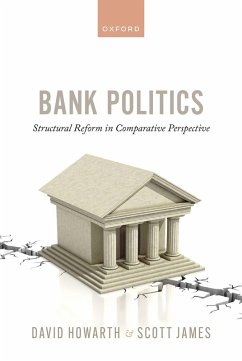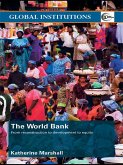The problem of banks being 'too big to fail' was the defining regulatory issue of the global financial crisis. However, attempts to tackle the problem by separating retail banking from higher risk trading activities - known as structural reform - proved to be highly divisive and contributed to significant regulatory divergence. In this book, David Howarth and Scott James explain this variation by examining the politics of bank structural reform across six key jurisdictions: the United States, the European Union, the United Kingdom, France, Germany, and the Netherlands. Integrating political economy and public policy approaches, they develop a novel 'comparative financial power' framework to analyse how financial industry influence is mediated by two factors: first, whether bank lobbying is unified and centralized (cooperative financial power) or divided and fragmented (competitive financial power); and second, policy makers' use of venue shifting to depoliticize contentious policy issues. The book explains that the US and UK governments implemented major reforms because the banking industry was divided and faced significant opposition. However, venue shifting to an independent committee led to durable reform in the UK, while political polarization in the US contributed to contested reform. By contrast, the French and German governments balanced unified bank lobbying and political pressures to act by pursuing limited symbolic reforms; the Dutch government deflected the issue through delegation to multiple commissions (no reform); while political stalemate at the EU level resulted from early venue shifting and concerted pan-European bank lobbying. The book makes a major contribution to scholarship on the political economy of finance and business power.
Dieser Download kann aus rechtlichen Gründen nur mit Rechnungsadresse in A, B, BG, CY, CZ, D, DK, EW, E, FIN, F, GR, HR, H, IRL, I, LT, L, LR, M, NL, PL, P, R, S, SLO, SK ausgeliefert werden.









